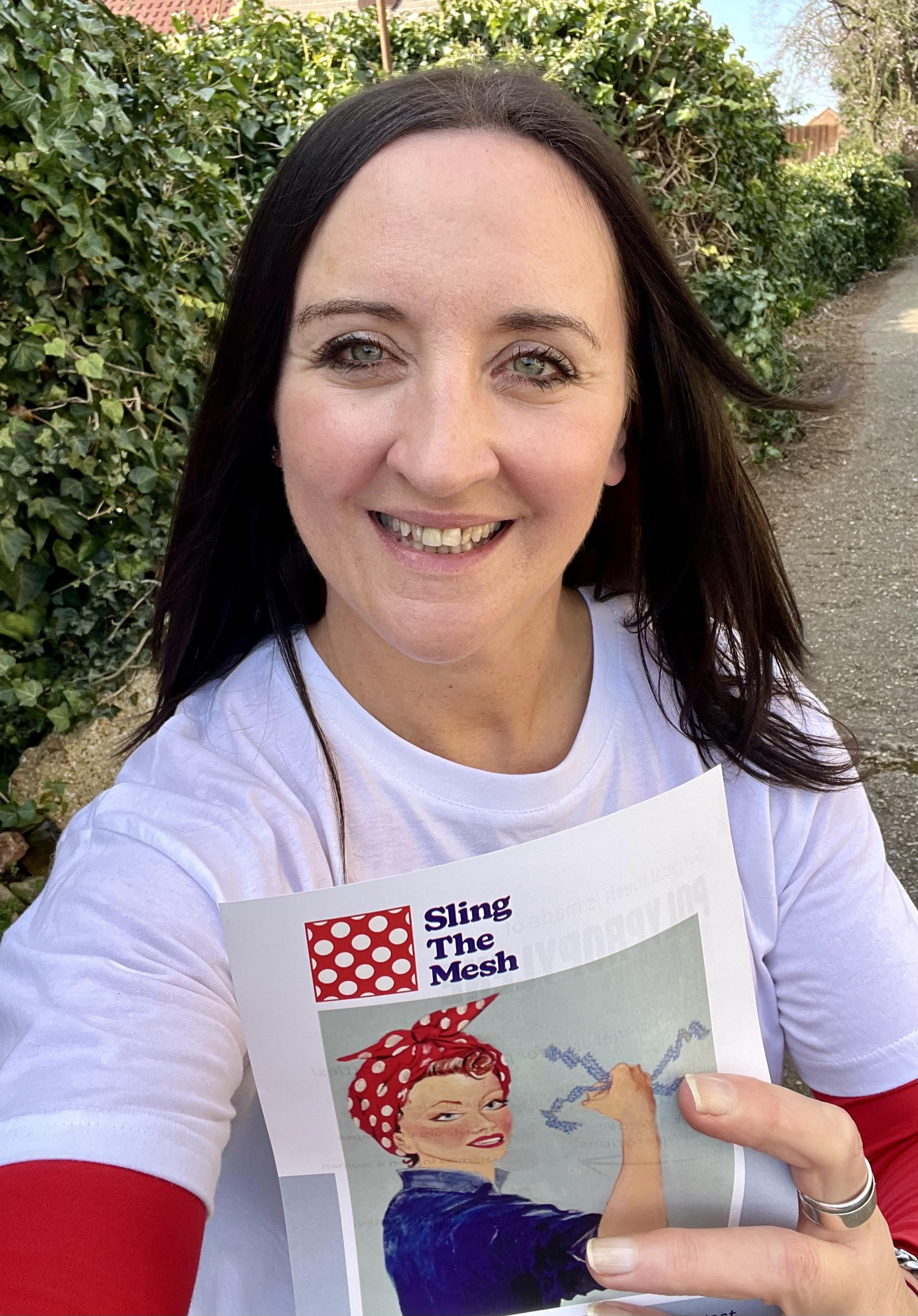Looking back to 2015, I could never have imagined how dramatically my life would change. At the time, I was a journalist and photographer – fit, active, and simply seeking a solution to a health issue that had developed after having children.
I underwent what I believed was a routine 20-minute day-case procedure: a pelvic mesh sling to treat bladder leaks caused by childbirth and worsened by perimenopause in my mid-forties.
I assumed it was similar to a contraceptive coil – something that could be easily removed if it didn’t suit me. I had no idea it was made of plastic and designed to be permanent by knitting and embedding into tissues, making it risky and complex – in some cases dangerous – surgery to remove.
Instead, the surgery left me in excruciating pain. At my six-week check-up, the surgeon claimed he’d never heard of mesh complications and offered to refer me to a back specialist. Yet when I mentioned a UK-based mesh removal expert, he admitted knowing their name. That contradiction was a red flag.
I felt gaslit and dismissed. And in that moment, I realised: if this could happen to me – a local newspaper journalist with the power to expose such a nonsensical consultation – then it must be happening to countless other women across the country.
I wasn’t alone. Across the UK, women were suffering devastating side effects: pain so sharp it felt like barbed wire inside them, autoimmune disorders, infections, and lives turned upside down. Some were left needing mobility aids, others had mesh cutting into vaginal walls, bladders, or bowels – requiring organ removal and stoma bags.
All of this from trusting our doctors, believing we were being offered a quick fix for bladder leaks or prolapse, often caused by childbirth.
When we tried to speak up, we were dismissed. Told our symptoms were rare, or worse, imagined.
That disbelief and isolation lit a fire in me. We needed a collective voice – a platform where women could share their stories, support one another, and fight for recognition and justice.
So, in June 2015, I founded Sling the Mesh, a support and campaign group that began with just a handful of women online. It grew rapidly as more found the courage to speak out and realised they weren’t alone.
By 2025, the group has grown to over 12,200 members worldwide. It includes women and men affected by hernia mesh complications, rectopexy bowel mesh, and even those harmed by mesh used in breast cancer reconstruction. Men who’ve had bladder mesh slings after prostate cancer surgery have also joined, all facing the same institutional denial.
From grassroots beginnings, Sling the Mesh has become an international campaign.
I’ve spoken in UK and Australian Parliament, attended rallies, lobbies, and debates. My advocacy helped lead to the suspension of bladder mesh slings in 2018 and contributed to the ban on vaginal prolapse mesh in 2017.
It also played a key role in the Independent Medicines and Medical Devices Safety (IMMDS) Review from 2018–2020, which resulted in the publication of the First Do No Harm report – a scathing indictment of the UK health system’s failure to listen to women, pause unsafe treatments, and prioritise patient safety.
My work contributed to the creation of the UK’s medical devices outcome register and helped expose how weak scientific evidence and conflicts of interest can lead to overstated benefits and understated risks in medical literature.
I’ve written countless articles and press releases for regional, national, and international media, appeared on broadcast platforms, and contributed to scientific publications – all with one goal: to raise awareness.
But at the heart of Sling the Mesh are the members. Every story of pain and resilience shared in the support group, reminds me why we fight.
We are not statistics or case studies – we are mothers, daughters, sisters, fathers, sons, friends. We deserve to be believed, heard, and treated with dignity.
Creating Sling the Mesh was never part of my life plan, but it has become my purpose. Until every person harmed by mesh is fully supported, and until lessons are learned to prevent this from happening again, I will keep going.
Because no one should ever suffer in silence.
~
Photo credit: Image provided by the storyteller.


